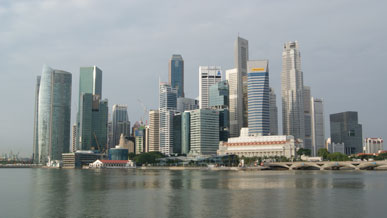
Singapore has now fallen in line with the Organisation for Economic Co-operation and Development (OECD) and accepted a joint protocol with France regarding tax treaties and the exchanging of information. This signing will bring the bilateral tax treaty held by Singapore and France into scope with the standard OECD transparency expectations.
Having now signed 12 agreements with OECD the jurisdiction of Singapore has moved into the category reserved for those jurisdictions that meet the OECD requirements. This is known as the “substantially implemented category” and Singapore is now the 15th jurisdiction to move into its ranks since April 2009. It is thought that Singapore will also sign four additional transparency agreements with the OECD, which includes an agreement with Brunei. To show its commitment to the correct implementation of this OECD legislation Singapore now allows the exchanging of information with regards to fiduciary and bank details with tax authorities within different countries.
Like all countries who allow their information to be exchanged, Singapore’s legislation will undergo a peer review based on the Global Forum on Transparency and Exchange of Information for Tax Purposes that was established in September 2009. Singapore is the vice-chair in the Peer Review Group and thus has strong activity in the Global Forum.
Angel Gurria, the secretary general at the OECD, applauded the joining of Singapore when speaking on the OECD website “Singapore is a key player in the global financial community. The fact that Singapore has removed the legislative impediments to its implementation of the international standard is very welcome and it confirms that there is a new global environment of tax cooperation. No jurisdiction can stand apart from this movement towards greater transparency for tax purposes.”
The OECD is an organisation that joins 30 nations together who believe in the free market system. The countries who participate are given a forum to discuss matters, find scope to cooperate with each other also create legal agreements within economic and social policy.

